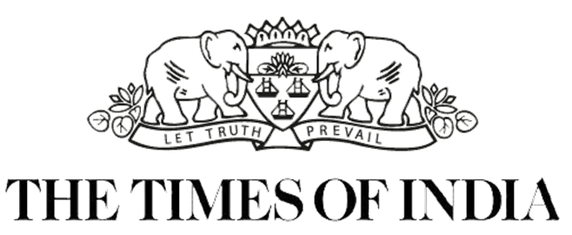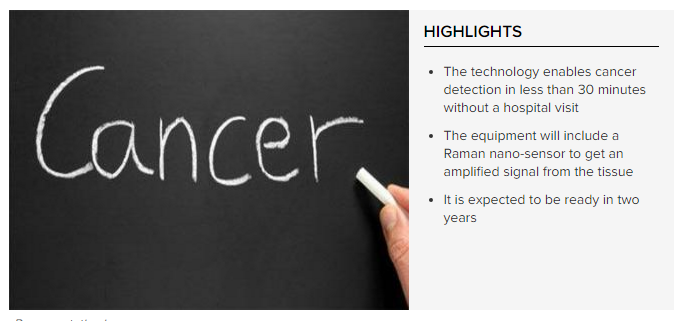Adarsh Jain| TNN | Sep 17, 2016, 02.48 AM IST
The result is a technology that enables cancer detection in less than 30 minutes without a hospital visit. The team is now working on a hand-held instrument to detect oral cancer. It is expected to be ready in two years.
“We used the method on samples of oral cancer, normal tissues and pre-cancerous tissues. The first set of positive results came two years ago,” said Shantikumar V Nair, one of the three inventors of the technology. The department of biotechnology has provided the team Rs 60 lakh to design the gadget, expected to cost around Rs 10 lakh.
The cancer detection technology uses a laser with a nano substrate to detect pre-cancerous and cancerous cells. Use of laser to read the nature of cells is not new, but the signals that they produced were found to be weak and difficult to analyse.
The nano substrate (a nano material) placed on the tissue solved the problem. “The nano substrate amplifies the signals and helps us analyse the results. For each type of tissue — normal, pre-cancerous and cancerous, there is a distinct Raman spectrum emitted by the laser,” said Nair.
“Raman signal helps identify organic molecules in tissues. Since these molecules vary depending on the condition of the cells, signals coming from cancer tissue with those coming from normal tissue will be distinct,” said Nair.
The equipment will include a Raman nano-sensor to get an amplified signal from the tissue. The signals can be analysed at a central facility, and the result will be available within 30 minutes.
While this is a preliminary test to detect cancer, scientists say gold-standard tests will have to confirm it. Nair, who is also the dean of research at Amrita University, said the new gadget will enable community level large-scale screening without having to take tissue biopsies.
“In principle, it can diagnose any cancer from which Raman spectra can be obtained… We have paid more attention to oral cancer because of the possibility of screening for these cancers early and also because oral cancer is on the rise and is curable if detected early,” Nair said.

